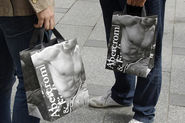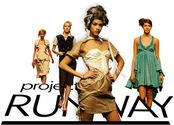-
About
- About Listly
- Community & Support
- Howto
- Chrome Extension
- Bookmarklet
- WordPress Plugin
- Listly Premium
- Privacy
- Terms
- DMCA Copyright
- © 2010-2025 Boomy Labs
CAUTION
This page has been marked as not safe for work (NSFW) due to potentially adult related content
 Kendra Brea Cooper
Kendra Brea Cooper
Listly by Kendra Brea Cooper
Fashion moves in circles, it time travels while jumping decades, it speaks for us, and tells the stories we could never fit into language. Project Runway is a reality competition show where talented designers compete for elite fashion industry awards. As a fashion competition, Project Runway has influence through the television platform, the way it uses social media, the structure, the discourse between judges and designers, and the fan base.

Reality television seems unstoppable, because we love to watch real life characters because it brings us closer to the fantasy. Fashion fits perfectly in the visual realm because its meaning is made for eyes, and a fashion competition involves dialogue, music, and vibrant personalities. The narrative weaves itself.
Some of the designs on PR are unwearable pieces, showing us how fashion can be art outside of utility. Grocery store items, apartment furnishings, and tiny lights are just some of the materials the designers have made stylish clothing out of. These challenges are a way of highlighting the ways in which fashion means more than just covering your body. There is no essential meaning to a piece of clothing, we create it socially.
The designers that come on the show bring with them their backgrounds, communities, and subcultures. For example, Christian Siriano has a background in ballet and loves musical theatre. Fashion doesn't sit in one definition. Styles develop meaning from experience in groups and then pass through others based on connection and attachment. Each Designer uses these experiences and sews them into unique pieces as characters in their story.
For any reality television, social media such as Twitter is a powerful arena for discussion. Sometimes they directly tie the public to the show through it during competitions where the public chooses. This is where the public gets a say beyond what the judges do. People resist and agree with the choices made, coming up with their own conclusions. Sometimes the designers get famous because of this, outside of who the judges actually pick. This is how fashion works, it is not just thrown at us and we wear it, it is a discussion.
There are countless ways we can wear our clothing, but a limitless feeling is an anxious one, and trends take hold by creating copycats. This happens for many reasons including social, cultural, and economic. The competition is like a miniature of the marketplace, where there are interactions between buyers, producers, and the clothing. There is a process here that reflects a larger one, the eliminations and wins that lead to fashion covers and runway shows. This method doesn't leave much room for fashion resistance and change in the structure, but it can inspire the rejection of trends and fashion control on the streets.
The designers have to restrain and control their creativity for the sake of time management. While they're collecting materials, I often wonder what could have been of their projects and the potential that is lost at the whim of a ticking clock that will not wait for a last stitch. Is there more we have lost to efficiency? This makes their final shows more important, as we finally witness their potential.
Fashion doesn't just sit outside of culture, it attaches itself to everything and can easily take on the meaning of other objects. Often, the designers have special challenges with very specific rules. Some of these challenges involve a person, like Nicky Hilton, or a brand, like Levi's Jeans. These brands have mythologies behind them, and the fashion designers take those on as they create.
What does it mean when clothing is judged? Clothing is meant to cover our bodies and keep us warm, but when it enters the social world, meaning is attached to it in all the ways language can offer. One of the ways clothing becomes "fashion" is when it is center stage on a television show with a group of judges that have influential backgrounds in what we wear. Heidi Klum, Michael Kors, Nina Garcia, and their fourth expert hold the power of final say and influence on a widely viewed platform, this being reality television.


Pop culture and all that ideology sitting in the blind spot. Also crafts.